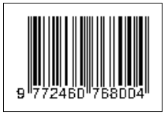Pengembangan Kemampuan Model Autonomous Car Terhadap Aspek Keselamatan Berkendara Saat Kondisi Ekstrem Menggunakan Carla Simulator
Muhammad Fadli Fadli Hernanda(1*), Muhammad Idham Ananta Timur(2)
(1) Electronics and Instrumentation Universitas Gadjah Mada
(2) Departemen Ilmu Komputer dan Elektronika, FMIPA UGM, Yogyakarta
(*) Corresponding Author
Abstract
The advancement of automation technology, particularly in autonomous vehicles, has rapidly progressed with the integration of machine learning. However, these systems still face challenges in environments with dense traffic and dynamic conditions, making safety a primary concern. Traffic accident data indicate that the implementation of autonomous vehicles remains far from optimal, especially under extreme conditions such as severe weather and unpredictable traffic congestion. This study aims to develop an autonomous vehicle system model that can operate not only under normal conditions but also adapt to extreme situations. The model is developed using the CARLA Simulator, which enables testing in various realistic environmental scenarios. Simulations involving severe weather and high traffic density are conducted to evaluate the model’s resilience and responsiveness across different scenarios. The results show that the developed model enhances driving safety under extreme conditions with high effectiveness in obstacle avoidance and dynamic decision-making. Thus, this approach is expected to contribute to the development of more adaptive and safer autonomous vehicles for real-world applications
Keywords
Full Text:
PDFReferences
Dosovitskiy, A., Ros, G., Codevilla, F., Lopez, A., & Koltun, V. (2017). CARLA: An Open Urban Driving Simulator. http://arxiv.org/abs/1711.03938 [2] Dai, L., Lu, S., Xie, W., & Jia, R. (2023). Drift Control of Autonomous Vehicle Under Extreme Condition Based on Neural Network Tire Model. Proceedings of the 2023 7th CAA International Conference on Vehicular Control and Intelligence, CVCI 2023. https://doi.org/10.1109/CVCI59596.2023.10397310 [3] Sinha, A., Vu, V., Chand, S., Wijayaratna, K., & Dixit, V. (2021). A crash injury model involving autonomous vehicle: Investigating of crash and disengagement reports. Sustainability, 13(14), 7938. [4] Shao, H., Wang, L., Chen, R., Li, H., & Liu, Y. (2022). Safety-Enhanced Autonomous Driving Using Interpretable Sensor Fusion Transformer. http://arxiv.org/abs/2207.14024 [5] Eraqi, H. M., Moustafa, M. N., & Honer, J. (2022). Dynamic Conditional Imitation Learning for Autonomous Driving. IEEE Transactions on Intelligent Transportation Systems, 23(12), 22988–23001. https://doi.org/10.1109/TITS.2022.3214079 [6] Wang, K. (2020). Safe Reconfiguration of Autonomous Driving Systems. 2020 IEEE MIT Undergraduate Research Technology Conference, URTC 2020. https://doi.org/10.1109/URTC51696.2020.9668860 [7] O. Natan and J. Miura, "End-to-End Autonomous Driving With Semantic Depth Cloud Mapping and Multi-Agent," in IEEE Transactions on Intelligent Vehicles, vol. 8, no. 1, pp. 557-571, Jan. 2023, doi: 10.1109/TIV.2022.3185303. [8] Le Mero, L., Yi, D., Dianati, M., & Mouzakitis, A. (2022). A Survey on Imitation Learning Techniques for End-to-End Autonomous Vehicles. IEEE Transactions on Intelligent Transportation Systems. https://doi.org/10.1109/TITS.2022.3144867 [9] Felipe Codevilla, Matthias Muller, Antonio Lopez, Vladlen Koltun, & Alexey Dosovitskiy. (2018). End-to-end Driving via Conditional Imitation Learning. [10] Hanselmann, N., Renz, K., Chitta, K., Bhattacharyya, A., & Geiger, A. (n.d.). KING: Generating Safety-Critical Driving Scenarios for Robust Imitation via Kinematics Gradients. https://lasnik.github.io/king/. [11] Chitta, K., Prakash, A., Jaeger, B., Yu, Z., Renz, K., & Geiger, A. (2022). TransFuser: Imitation with Transformer-Based Sensor Fusion for Autonomous Driving. http://arxiv.org/abs/2205.15997
Article Metrics
Refbacks
- There are currently no refbacks.
Copyright (c) 2025 IJEIS (Indonesian Journal of Electronics and Instrumentation Systems)

This work is licensed under a Creative Commons Attribution-ShareAlike 4.0 International License.
View My Stats1







